Overview
Many of the stories of Kcymaerxthaere are the stories of languages and how some have even influenced perception itself.
The Shóaf Kepl Poets installation is a perfect example. It offers a kind of interactive dictionary which allows you to decipher the inscription on the white marble—the story there and the experience of uncovering it, also gives you insight into the languages known as 158s, where words are numbers and numbers are words.
Access
It is off the road from Baihe towards the temple complex.
Public Dedication
It is kind of overgrown now—when we clear it, we will have a rededication.
This was Kcymaerxthaere installation #089 and the second in linear Taiwan.
Dictionary Portion of Site: Area A
Two of the glossary slabs, with each idea in 4 different languages. If you are trying to decipher all the writing, the slabs offer clues not just in writing.
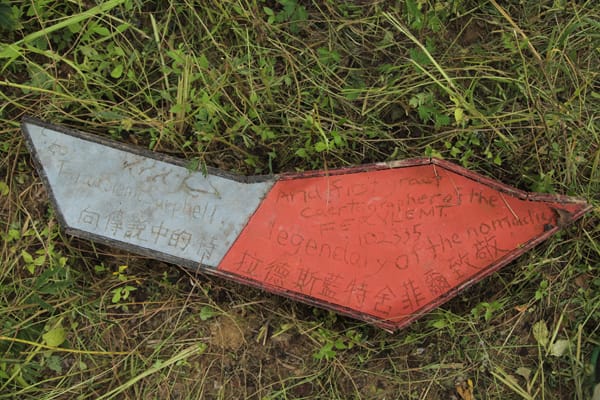
Shape A1.
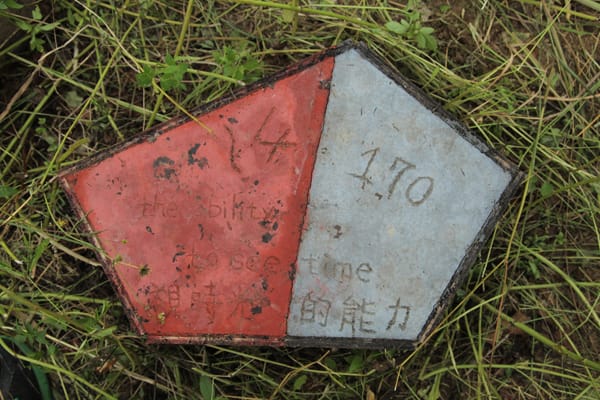
Shape A2.
Dictionary Forms: Area B
A fair number of these slabs are plain grey concrete—but the information embedded is multilayered.
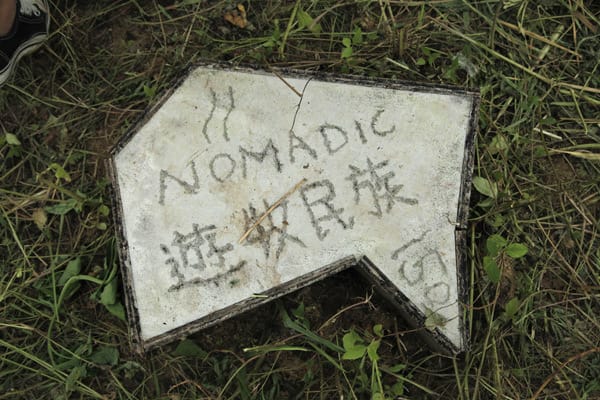
Shape B1.
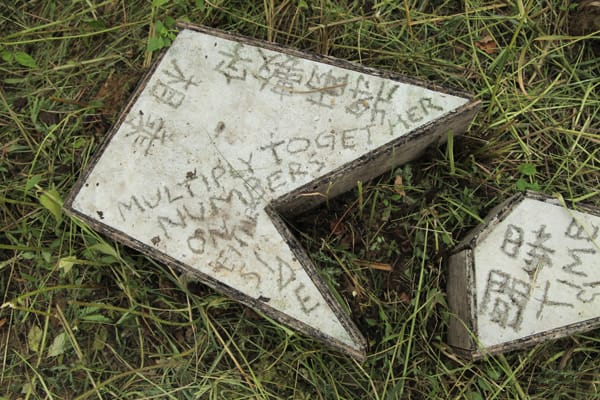
Shape B2.
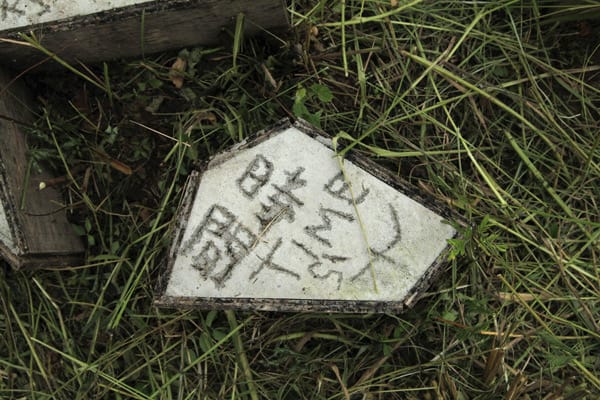
Shape B3.
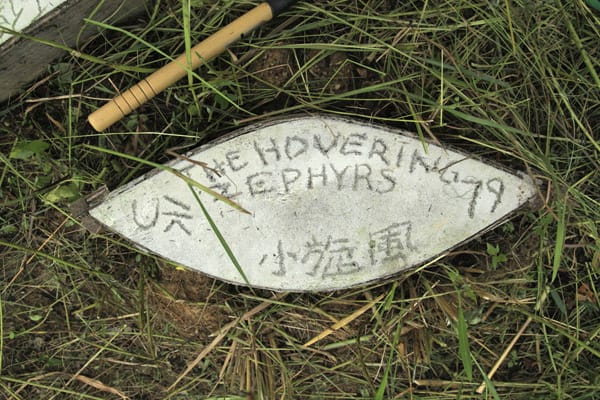
Shape B4.
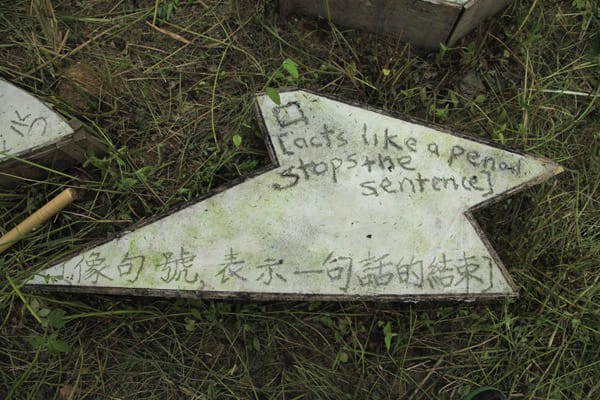
Shape B5.
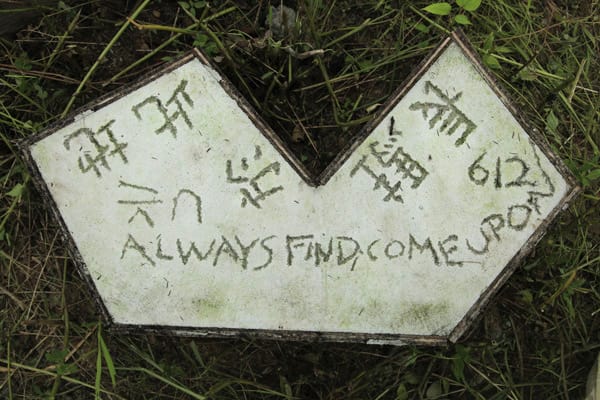
Shape B6.
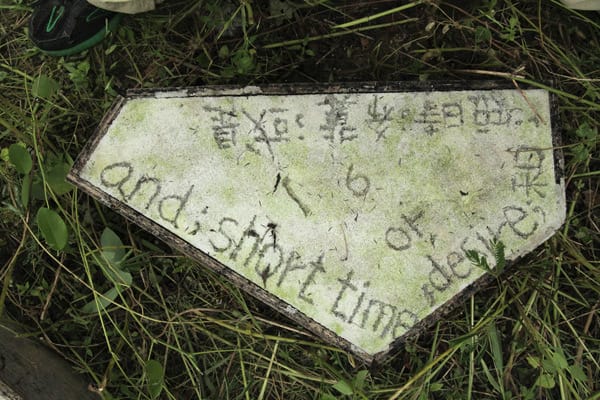
Shape B7.
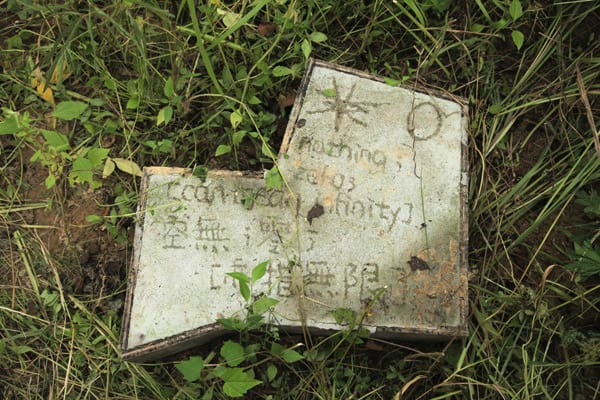
Shape B8.
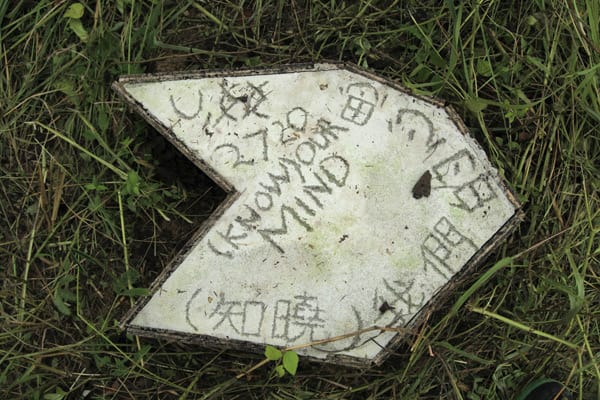
Shape B9.
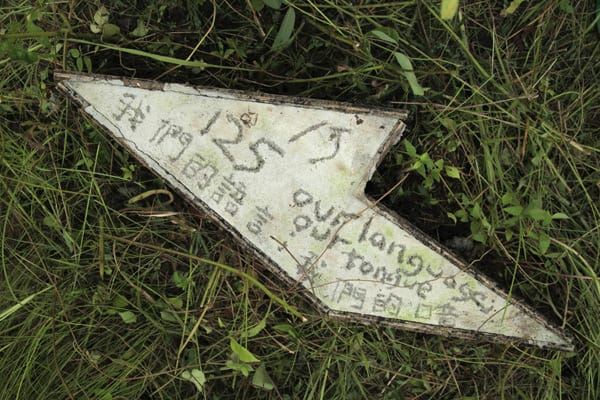
Shape B10.
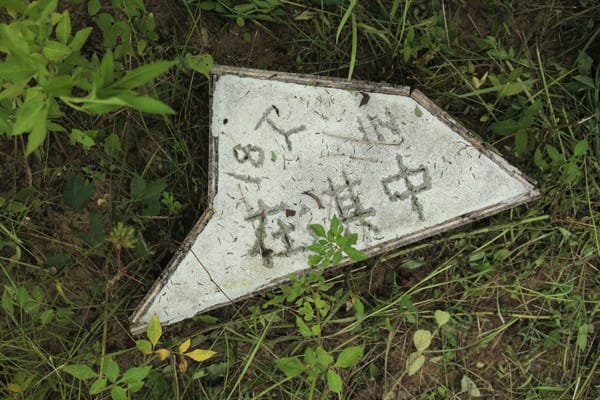
Shape B11.

Shape B12.
Dictionary Forms: Area C
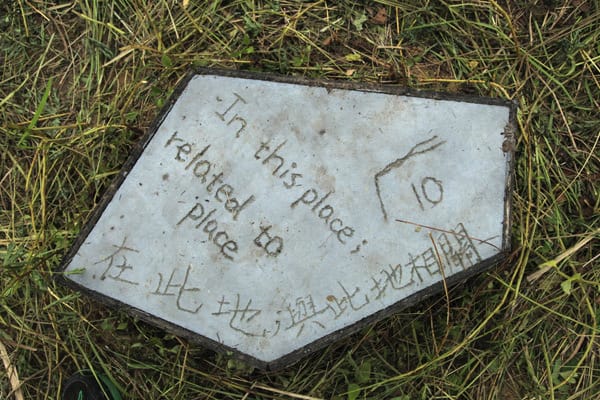
Shape C1.
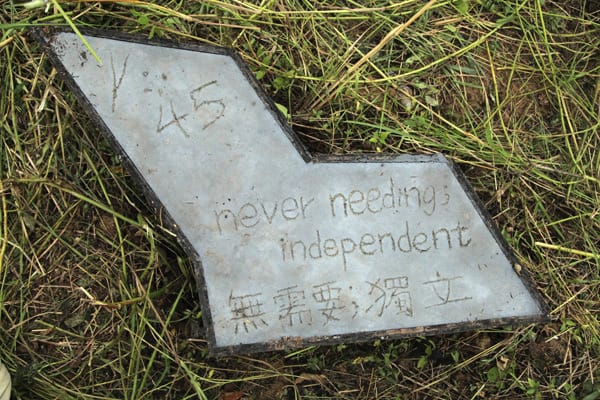
Shape C2.
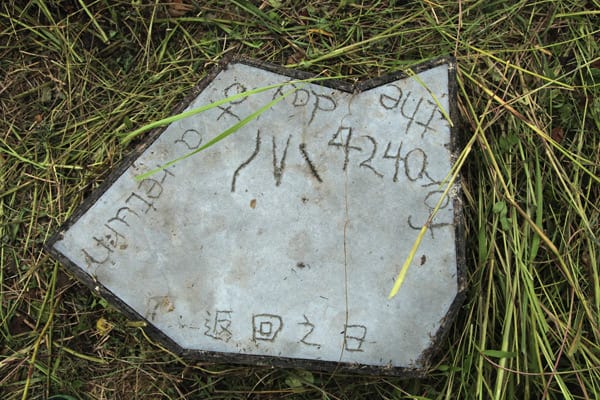
Shape C3.
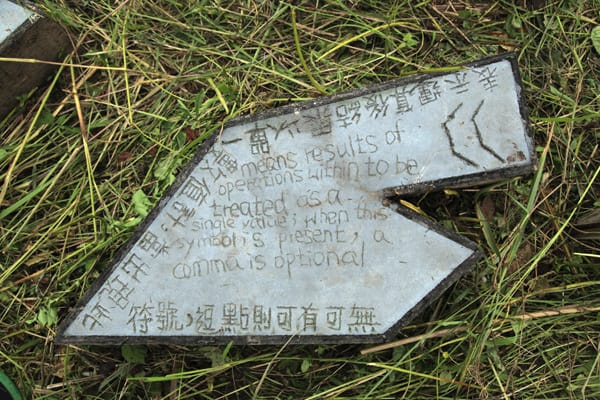
Shape C4.
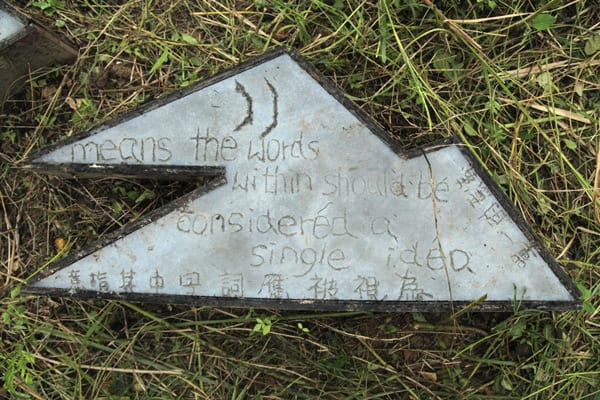
Shape C5.
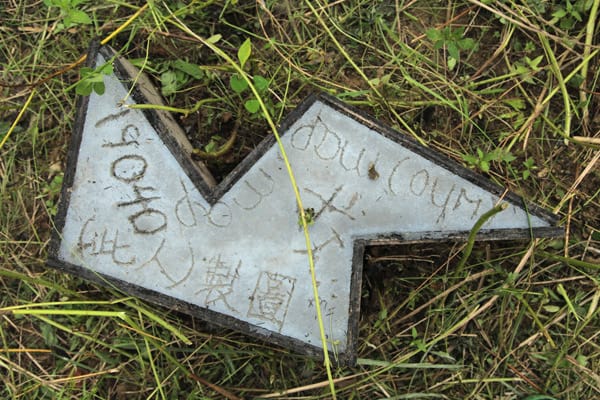
Shape C6.
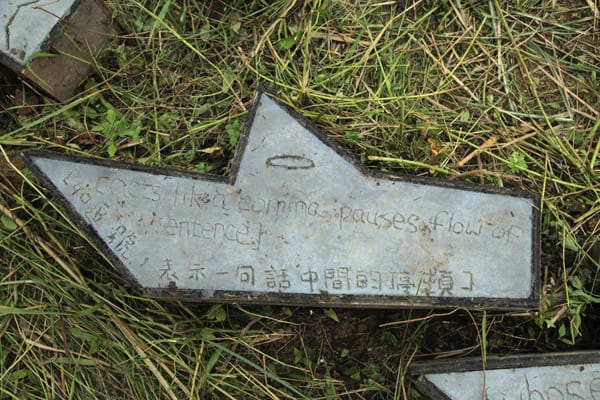
Shape C7.
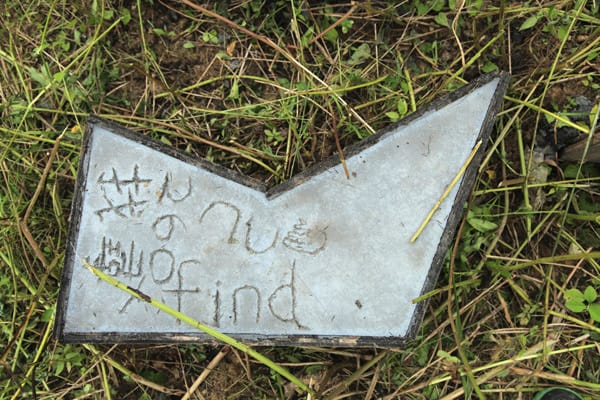
Shape C8.
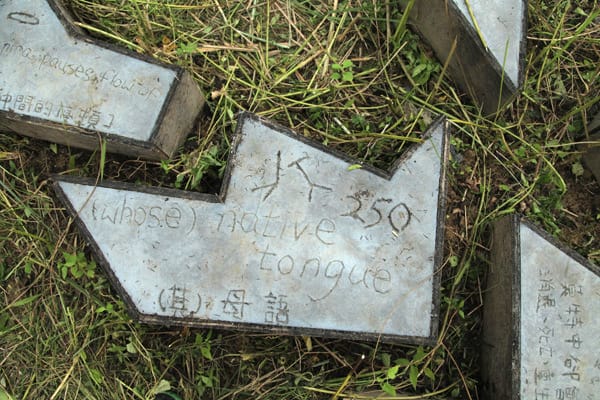
Shape C9.
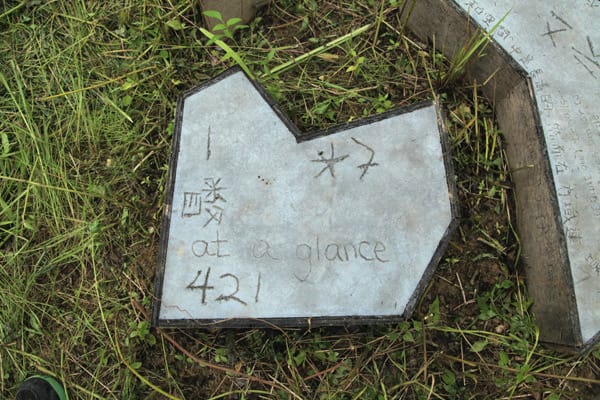
Shape C10.
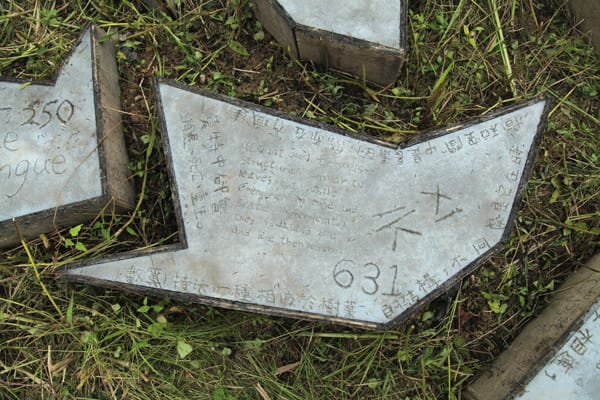
Shape C11.
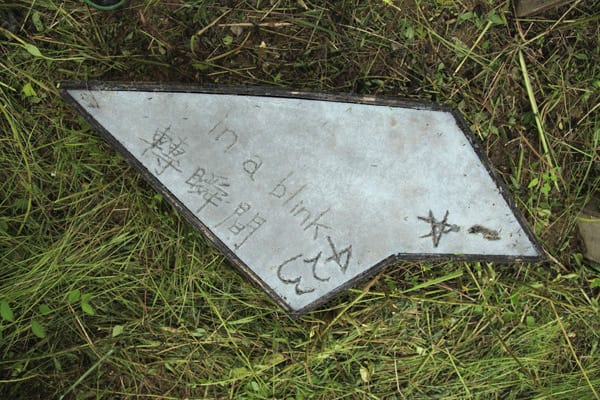
Shape C12.
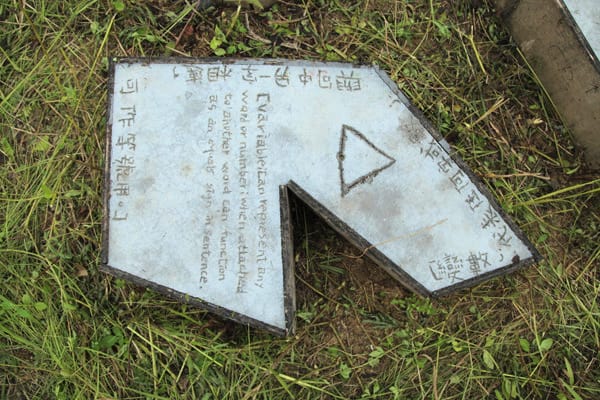
Shape C13.
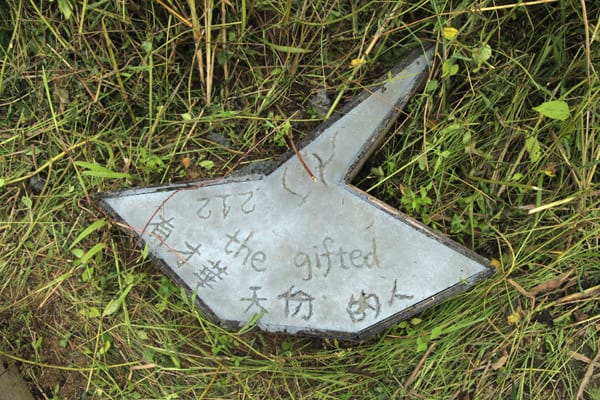
Shape C14.
Dictionary Forms: Area D
A fair number of these slabs are plain grey concrete—but the information embedded is multilayered.
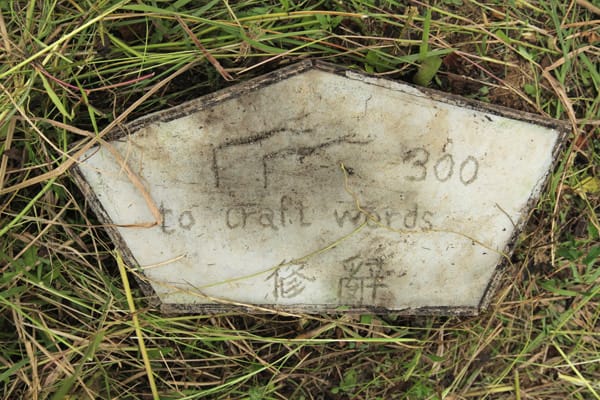
Shape D1.
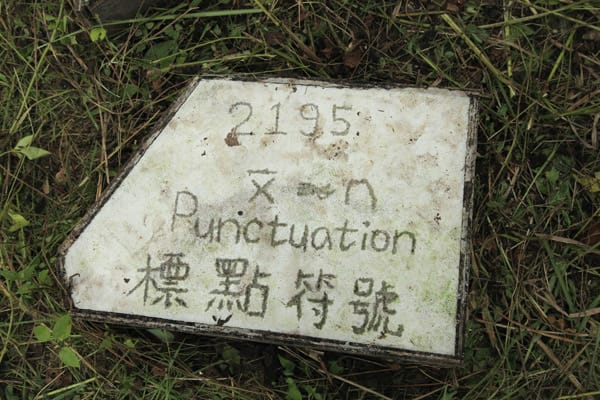
Shape D2.
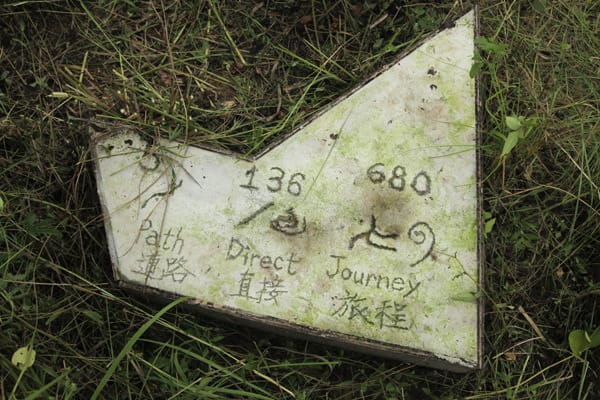
Shape D3.
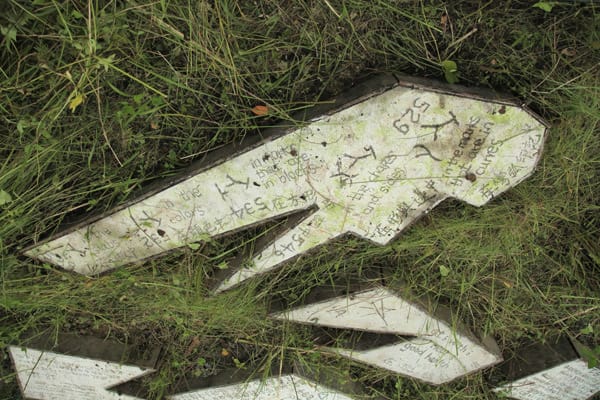
Shape D4.
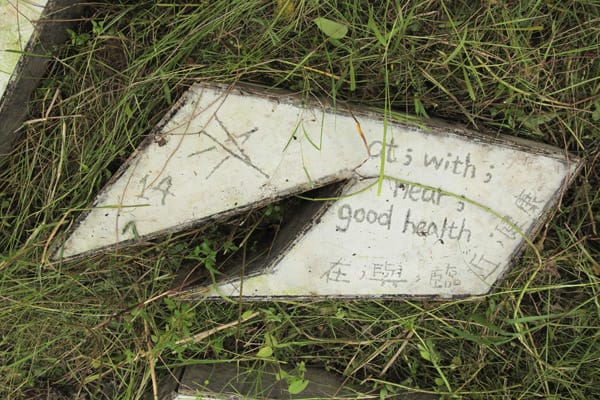
Shape D5.
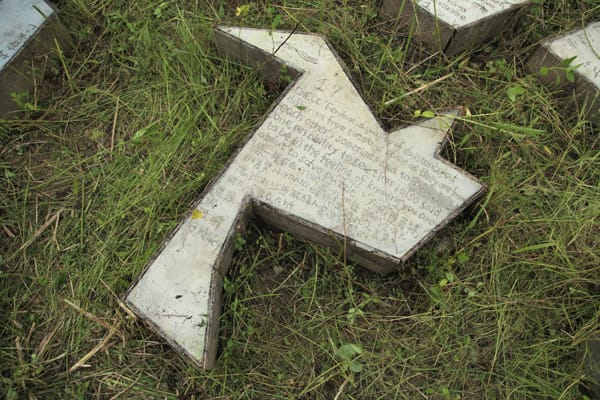
Shape D6.
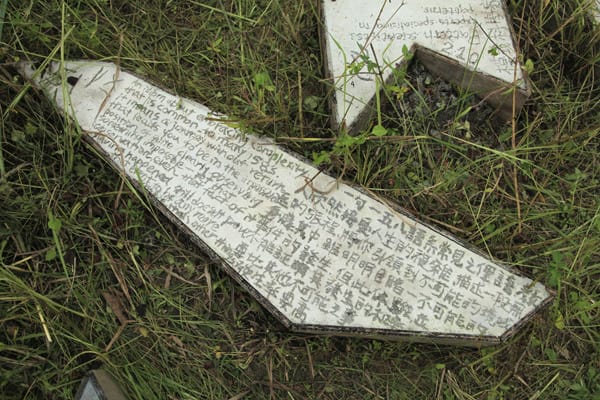
Shape D7.
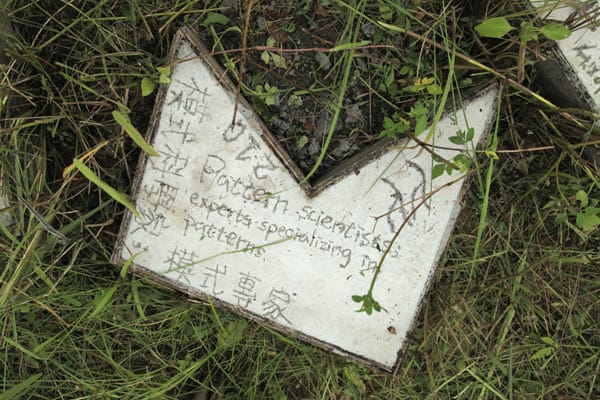
Shape D8.
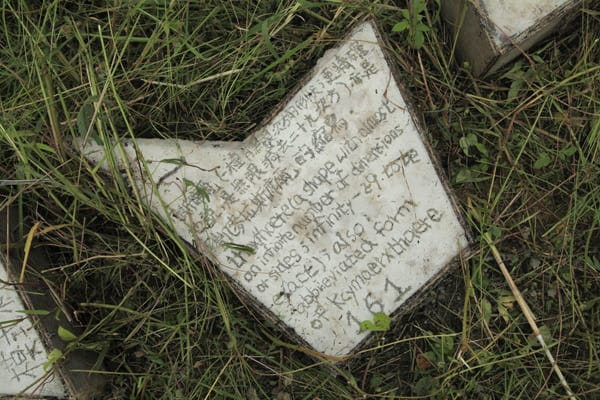
Shape D9.
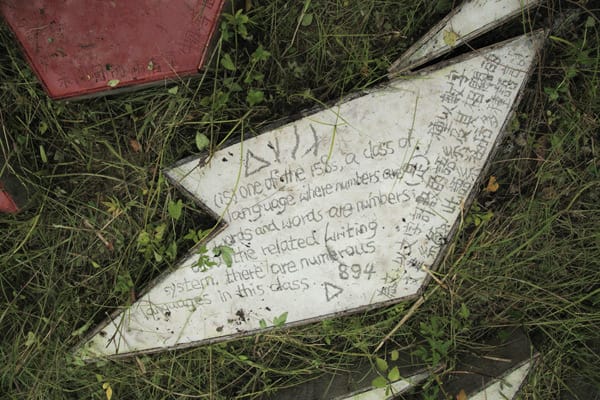
Shape D10.
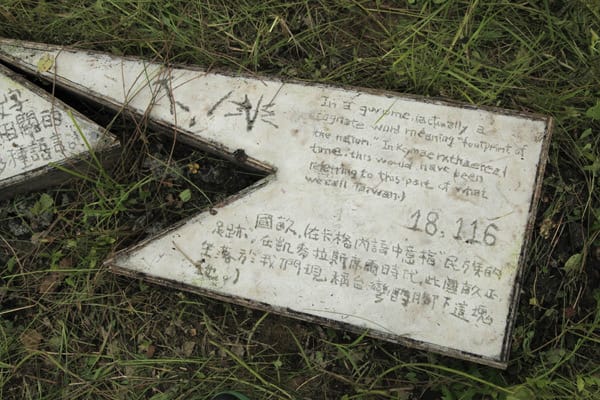
Shape D11.
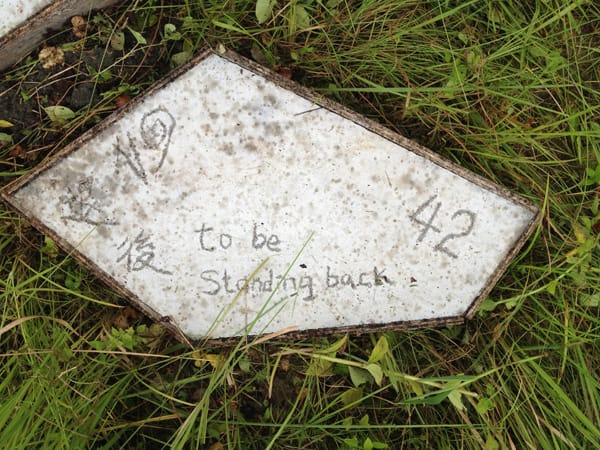
Shape D12.
Dictionary Forms: Area E

Shape E1.
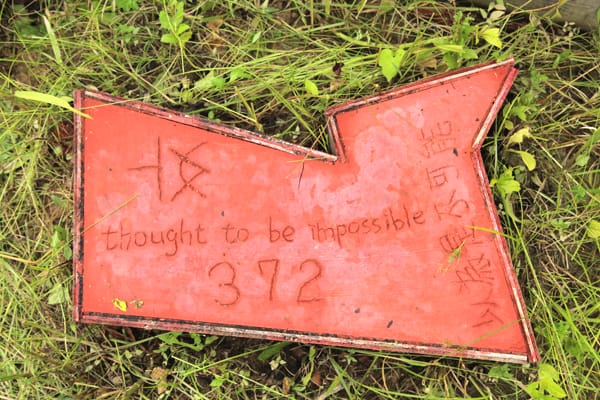
Shape E2.
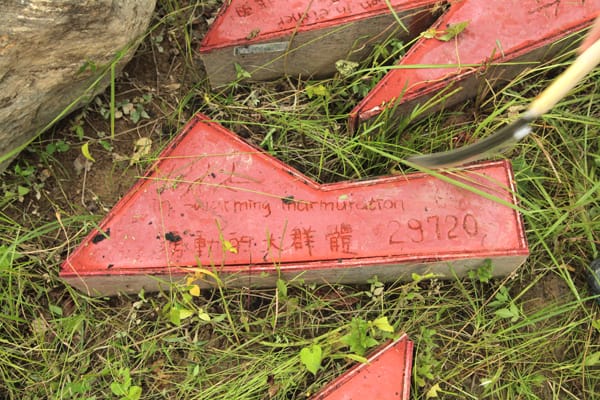
Shape E3.
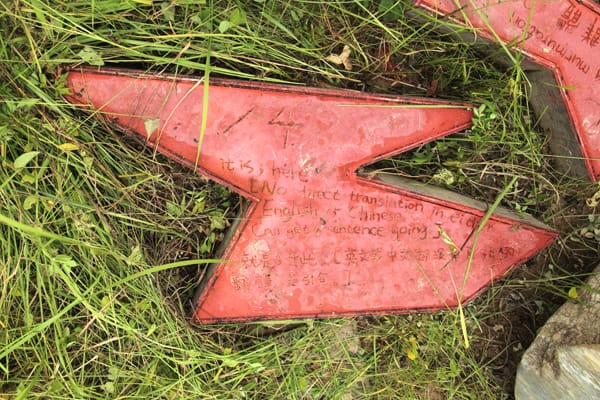
Shape E4.
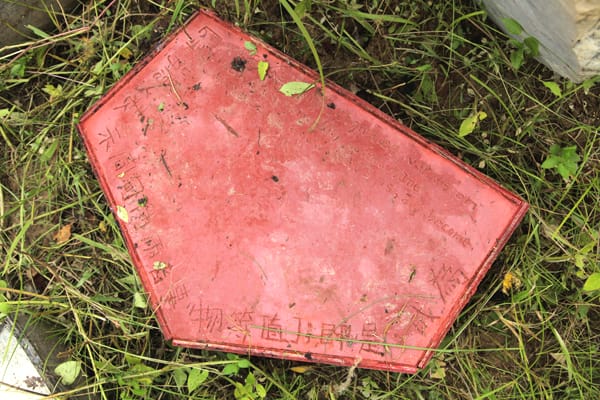
Shape E5.
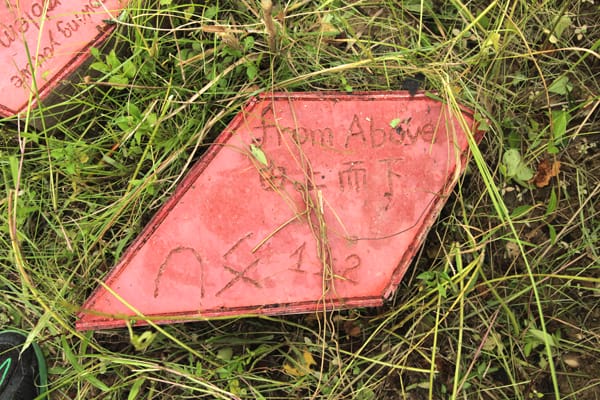
Shape E6.
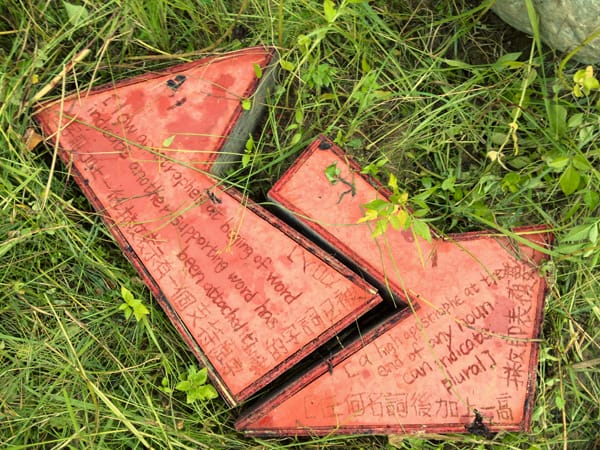
Shape E7.
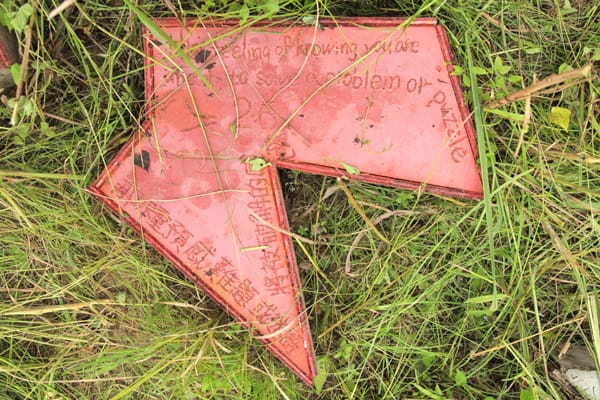
Shape E8.
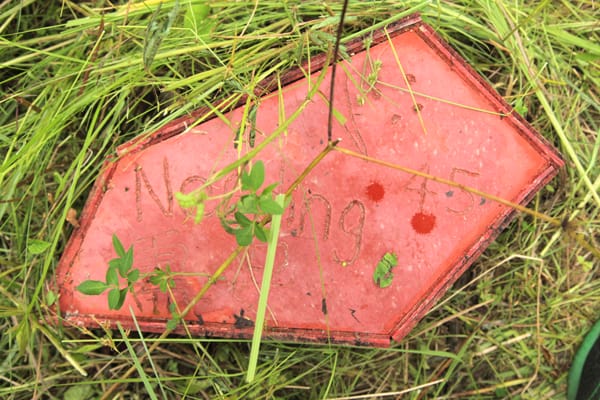
Shape E9.
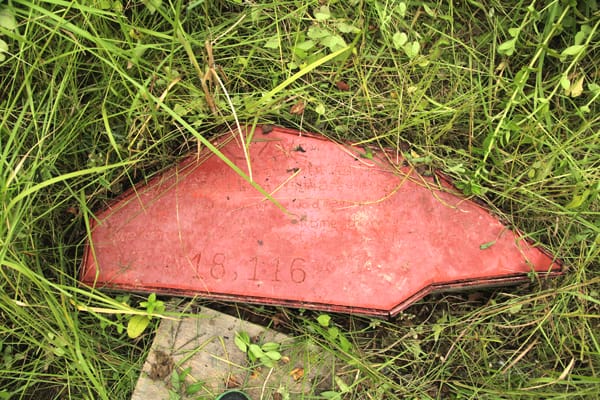
Shape E10.
EXTRAS
Text of The Marker Stone
The part of the story installed here:
Shóaf Kepl Poets
That well known drinking toast—and Cognate term for bards of the short form—had its origins right here in this gwome (a Cognate word meaning “footprint of a nation”). In fact, “Shøaf”, “Kepl”, and “Poets” are the sounds meaning the numbers 14, 11 and 48 in the language of this place (written with their characters as ![]() ) This tongue was of a type known as a 158: where numbers were words and words were numbers; where authors wrote equations and accountants scribed pages and pages of text to achieve the most simple addition. Importantly, while symbol and sound could convey meaning, it was in the count that real meaning ultimately lived. In this specific 158, 14-ness (so, 14 of anything: pebbles, claps, clouds—what have you) meant “good health,” 11 such things was “South,” and 48 added up to “the spirit of my thought.” Since the South was where the citizens of this place went to bear their children, this toast conferred good wishes on you and all your descendants. Not surprisingly, having a 158 as a native language made for a life of perception both quite literal and stunningly evocative, with myriad novels enmeshed in the nearly innumerable, and countlessly countable, stones of a single rocky beach.
) This tongue was of a type known as a 158: where numbers were words and words were numbers; where authors wrote equations and accountants scribed pages and pages of text to achieve the most simple addition. Importantly, while symbol and sound could convey meaning, it was in the count that real meaning ultimately lived. In this specific 158, 14-ness (so, 14 of anything: pebbles, claps, clouds—what have you) meant “good health,” 11 such things was “South,” and 48 added up to “the spirit of my thought.” Since the South was where the citizens of this place went to bear their children, this toast conferred good wishes on you and all your descendants. Not surprisingly, having a 158 as a native language made for a life of perception both quite literal and stunningly evocative, with myriad novels enmeshed in the nearly innumerable, and countlessly countable, stones of a single rocky beach. ![]()
And in Simplified Chinese...
修福 凱鮑 俳吟辭
這句眾所皆知的敬酒詞 — 日後在卡格內語中演變成「 短行吟唱詩人」之意 — 起先源於此「國畝」(卡格內語,意指「國境」)的所在地。「修福」、「凱鮑」,以及「俳吟辭」正是此國畝當地方言「十四」、「十一」,「四十八」三個數字的發音(以此地文字書寫則為 (![]() )。此方言隸屬一五八語系,特徵在於以數字為文、以文字計數。此地作家乃以數學程式抒懷,會計師則用長篇累牘進行最簡易的加法運算。尤有甚者,縱使聲調與形符皆可表情達意,此方言的精髓卻在唱籌量度之間。任意十四件事物(石塊、掌聲,雲朵等)意指『健康』、十一件代表『南方』,四十八加總出『我的心神意念』。因此地居民慣常前往南方懷胎生子,這句敬酒詞傳達對飲者及其子孫的祝福。無庸置疑,一五八語系的生活體驗不僅極其直觀尚且極致感性,一抹蜿蜒的礫灘無窮無盡的傾圮石堆,觸目可及,皆成琳瑯滿目的文卷詩篇「
)。此方言隸屬一五八語系,特徵在於以數字為文、以文字計數。此地作家乃以數學程式抒懷,會計師則用長篇累牘進行最簡易的加法運算。尤有甚者,縱使聲調與形符皆可表情達意,此方言的精髓卻在唱籌量度之間。任意十四件事物(石塊、掌聲,雲朵等)意指『健康』、十一件代表『南方』,四十八加總出『我的心神意念』。因此地居民慣常前往南方懷胎生子,這句敬酒詞傳達對飲者及其子孫的祝福。無庸置疑,一五八語系的生活體驗不僅極其直觀尚且極致感性,一抹蜿蜒的礫灘無窮無盡的傾圮石堆,觸目可及,皆成琳瑯滿目的文卷詩篇「![]() 」。
」。
Carvings in the Number Language
One of the big stones is written in Chinese and in English, but this one is written in the number language known as a 158. This writing system is quite beautiful to the eye. And it is what the visitor is invited to decipher. Photos illustrating the various phases of the installation process.
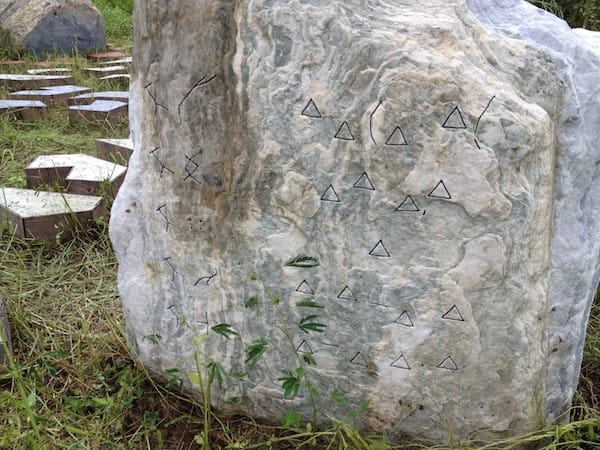
Front view of the Number Language stone.
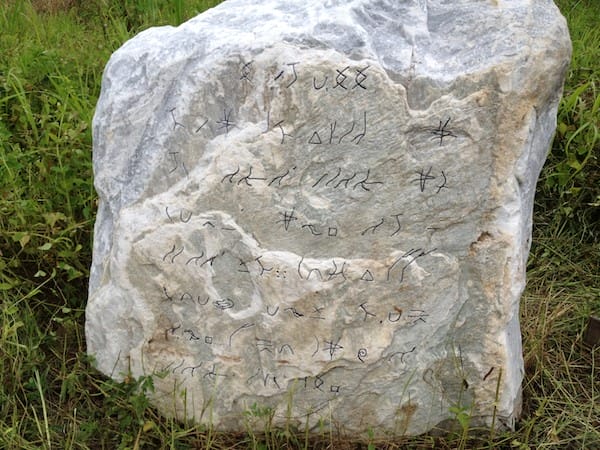
Rear view of the Number Language stone.
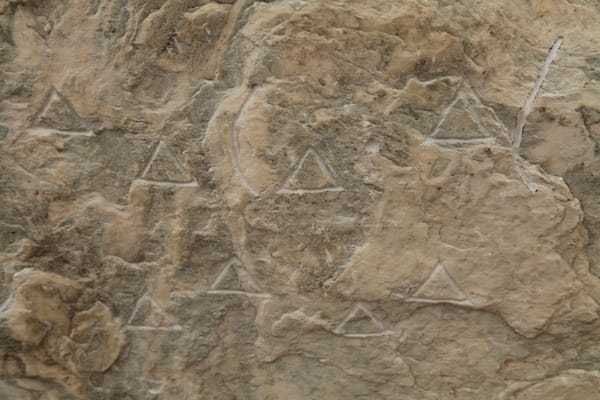
Detail from the front of the Number Language stone.
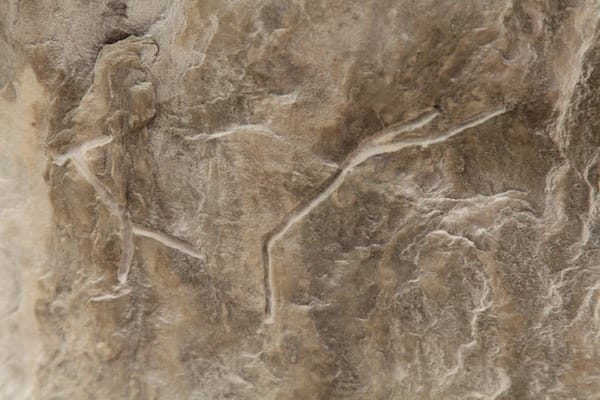
Another detail from the front of the Number Language stone.
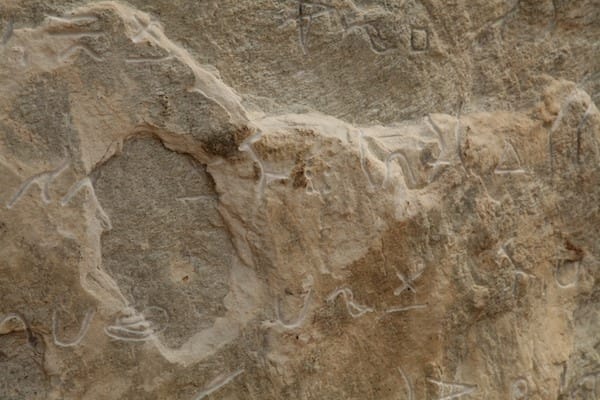
Detail from the rear of the Number Language stone.
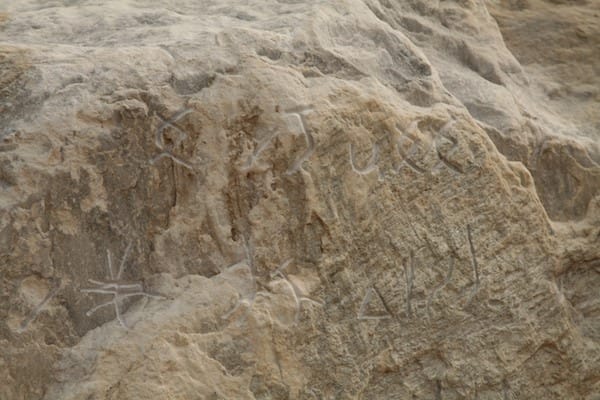
Another detail from the rear of the Number Language stone.
Installation Scenes
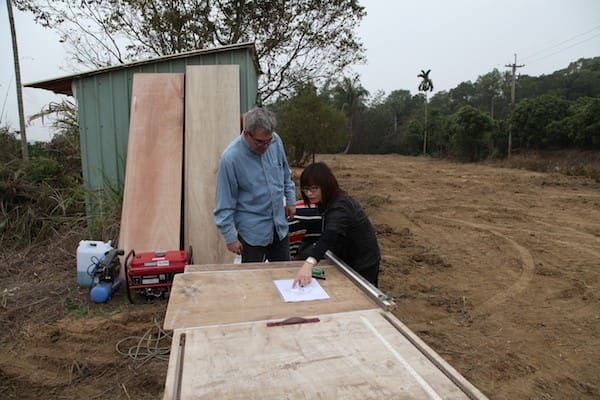
Going over some last details before construction gets underway.
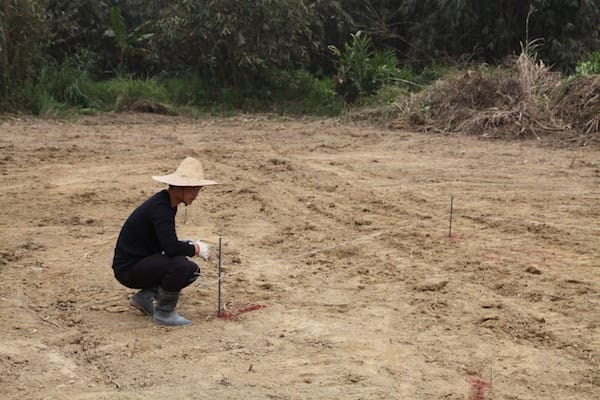
Marking the dig site.
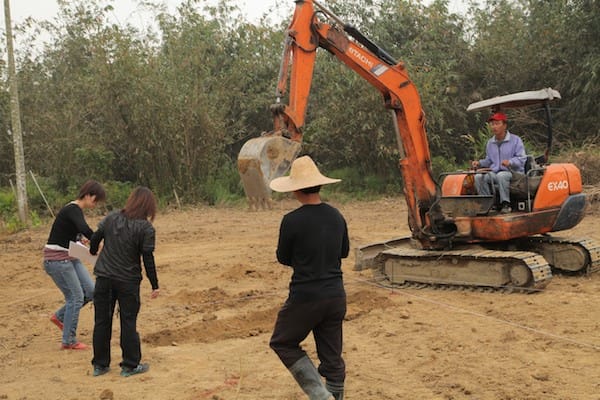
First swath of earth for the installation.
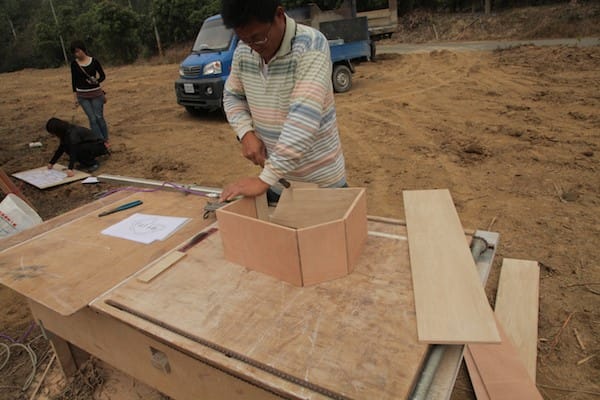
Building one of the wooden molds.
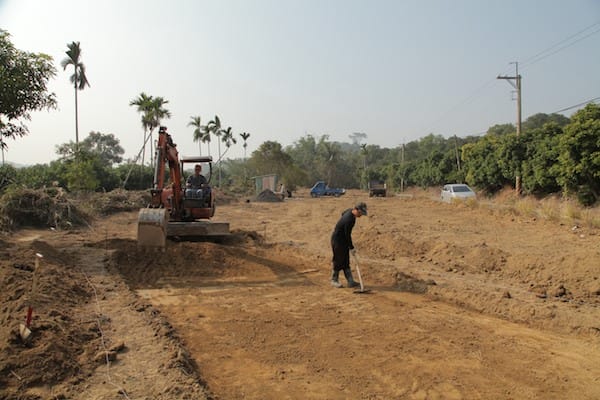
Hand-grading.
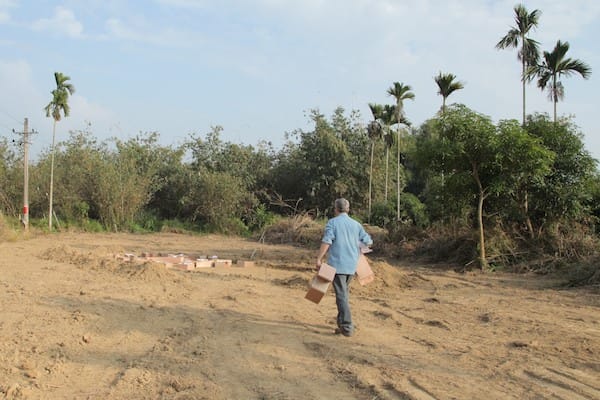
Bringing over the wood forms.
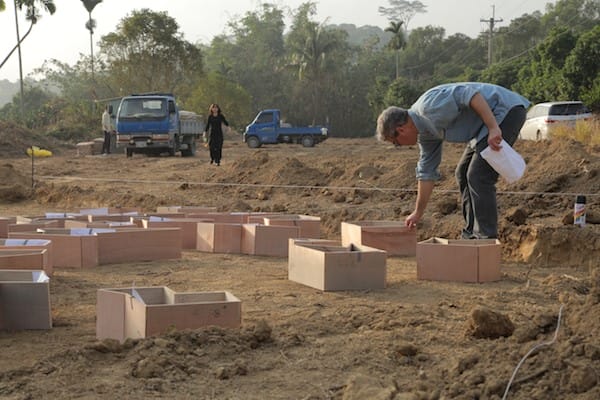
Fine-tuning the positions of forms.
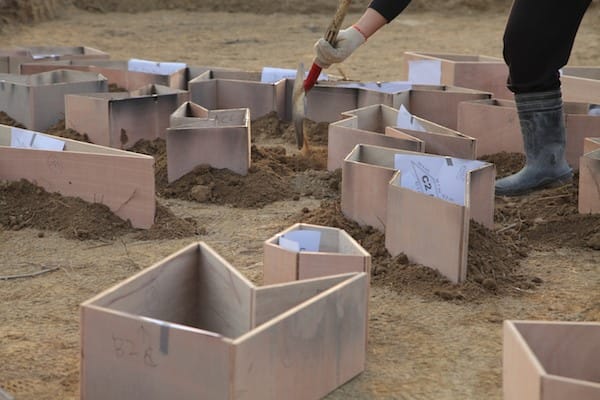
Anchoring the forms with shovel-fuls of soil.
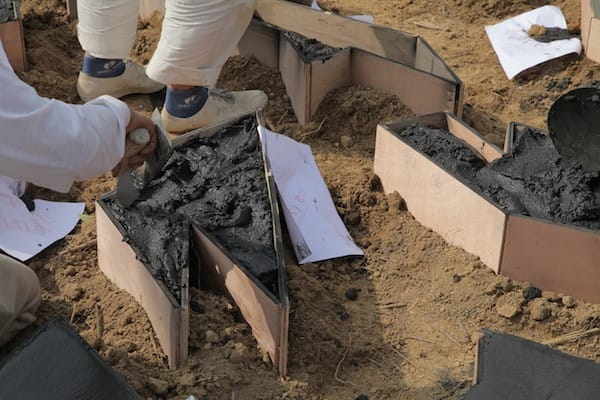
Troweling concrete.
On The Proper Spelling of Shóaf
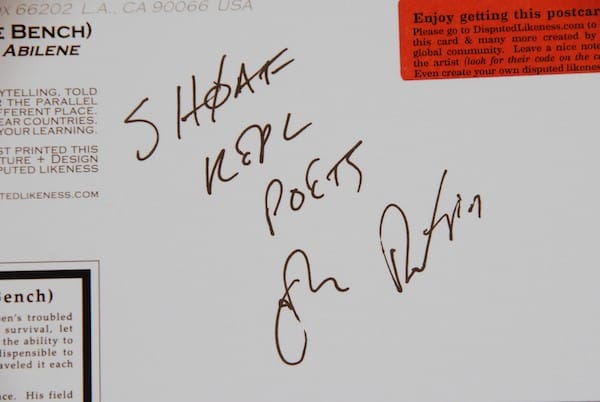
This spelling of Shoaf is completely acceptable and favored by many in signing correspondence. Some writers make a point of using both spellings if the word is used twice on a single page.
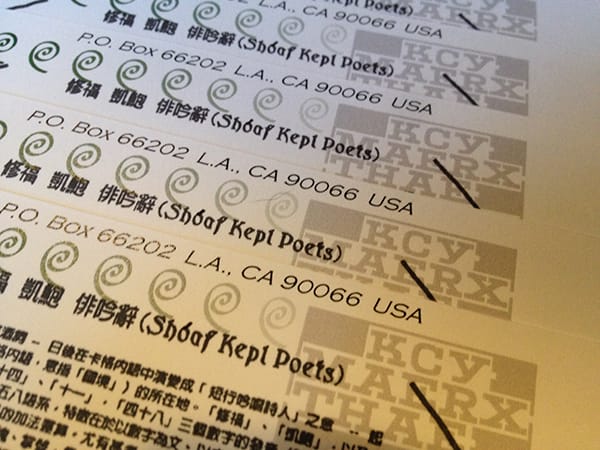
Preferred spelling of Shoaf, though there are widely understood alternate spellings.
In many digital applications, this o with an accent is used to approximate the feeling of the purest spelling (though it is most attractive when the gap between line and circle is smallest).
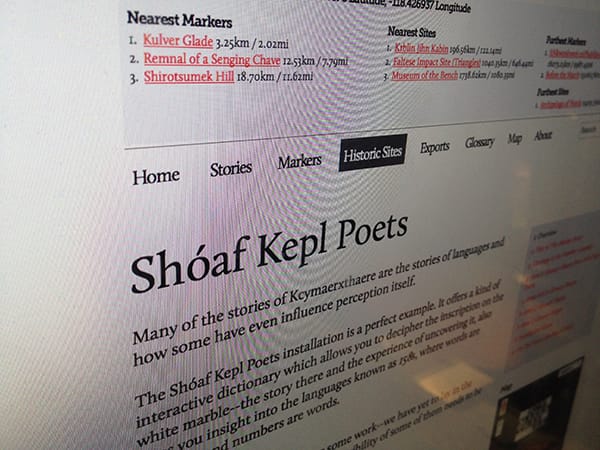
Example of a common digital solution to this spelling



